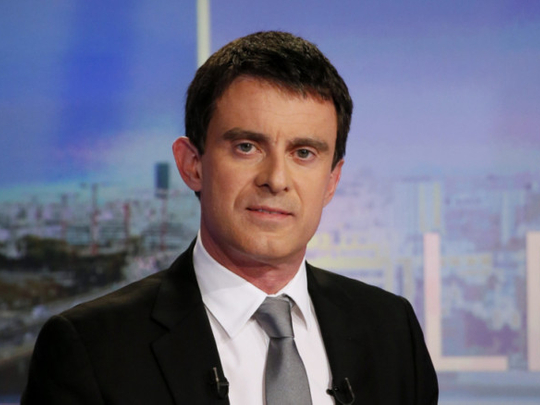
French President Francois Hollande and his now sacked prime minister, Jean-Marc Ayrault, never made a strong team. Whenever a French president chooses a weak prime minister, it ends in tears. Remember when Jacques Chirac was re-elected in 2002 with 80 per cent of the votes — thanks to Jean-Marie Le Pen’s sneaking into the second round? Instead of choosing, for instance, socialist reformer Michel Rocard to unite the country after such trauma, he chose ‘Mr Nobody’, Jean-Pierre Raffarin. Chirac is now thought of as a leader who presided over France’s slow decay. Remember Nicolas Sarkozy? Having resolved to be France’s supreme leader, he appointed a puppet, Francois Fillon, who swallowed the Kool-Aid for five years.
They all seemed to forget that in the French system, “the president presides” while “the prime minister governs”. The head of state sets out the overall strategy and the premier drives the country forward. A French prime minister needs stamina, pugnacity and no fear of unpopularity. He very much does the dirty work while the figure in the Elysee, floating above the daily grind of politicking, can indulge in big ideas and bask in his people’s love. That is the theory. Tellingly, Francois Mitterrand played by this rule, using his prime ministers like fuses, and was elected twice. He was also a French Machiavelli, which helped.
With the appointment of Manuel Valls as France’s new Prime Minister, Hollande is at last acting decisively. History will tell whether it was a shrewd move. What is certain, though, is that nothing could have been worse than keeping the spineless Ayrault at his side after last week’s drubbing at the local elections and the loss of 175 municipalities. We were told in 2012 that Ayrault’s appointment was in part due to his speaking fluent German. We still wonder how exactly this helped France.
The arrival of one the most popular French politicians at the Matignon will come as a relief and even please a majority of French people. Valls’s promotion has of course sent shockwaves through the French left. And this could prove healthy too. Valls, like Pierre Mendes-France in the 1950s and ‘60s and Michel Rocard in the 1970s and ‘80s, is a reformer rather than an orthodox socialist. They think out of the party’s box: Don’t conform, enjoy stirring controversies and generate contradictory debates among their peers.
Valls may be a “socialist Sarkozy”, as the Economist put it, but he turned down Sarkozy’s offer to join the French government in 2007, while other figures on the left, such as Bernard Kouchner and Fadela Amara, enthusiastically accepted, losing all credibility in the process. In fact, Valls is a true French republican in the historical sense of the term, with his feet firmly on the left. All the more so since he was not born French and only obtained French nationality at the age of 20. An ardent integrationist, he wants immigrants to adapt to France rather than France having to adapt to them. A few months ago, he caused consternation by saying Roma migrants should “return home” if they were not prepared to adapt to the French language and way of life.
It is Valls’ stance on the economy that has distinguished him from the rest of the left, who have been bottle-fed Marxist economic theories. An economic liberal, Valls is well-placed to follow Hollande’s U-turn and implement his pro-entrepreneurial and fiscal reform policies. It was no coincidence that at the end of Hollande’s televised address on March 31 evening he announced a cut in taxes.
The Greens, who have often clashed with Valls in the past, have already announced they will not go into government with him. We will soon know if Valls has called their bluff. The new French strongman will also need to be good at walking a tight rope.
— Guardian News & Media Ltd
Agnes Poirier is commentator and critic in the British and French press.







